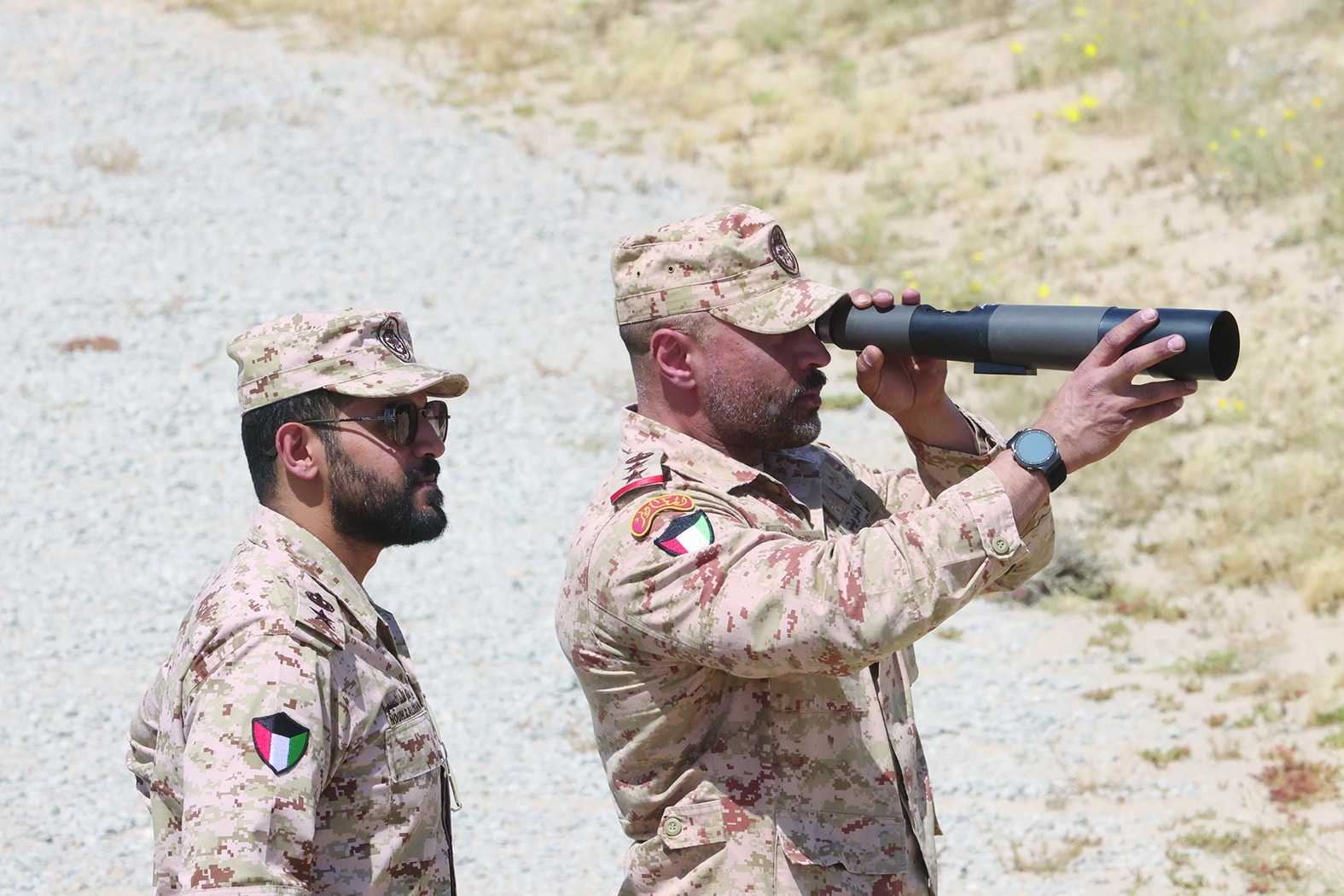By Majd Othman
KUWAIT: In cooperation with ministries of defense and interior and Kuwait Fire Force’s ordnance and explosive disposal department, the US military area support group at Camp Arifjan held on Thursday five emergency response rehearsal exercises to counter terrorist attacks.
Commander of the Area Support Group and Supervisor of Al-Qaeda operations at both Camp Buehring and Camp Arifjan Col Martin Wolgemut said five joint exercises were conducted as a result of planning over three to four months in cooperation with Kuwaiti ministries.
US military personnel participate in a mock drone attack exercise, at the US Camp Arifjan, about 60 kilometres south of Kuwait City, on May 4, 2023.Wolgemut said in a press statement this was a good opportunity to see the ability and readiness of the Kuwaiti side to respond quickly in arriving at the scene and dealing with loss of life, injuries and explosives, and their ability to transfer them to hospitals. "We held five joint exercises on major emergency events with the participation of 400 to 500 American soldiers and 50 to 60 Kuwaiti soldiers, including an attack by a drone, which was dealt with and responded to with a Patriot missile on the northern side of the base, which led to a large number of casualties,” he said. "As for the second training, it was a car explosion at the front gate, in addition to the discovery of another rigged car outside the gate.”
Wolgemut stressed the response of the Kuwaiti explosives unit was very quick, as it dealt with the two incidents with great efficiency. "The Kuwaiti forces participating in the training are highly prepared to face any security emergency or terrorist act, and have already asked for more joint exercises,” he said. "Air Defense Commander Brigadier General Khaled Ali Al-Hafez came with his team to watch the training at the Patriot site. We have to work together to confront emergencies that occur on the edge of the base, and I am very happy with the Kuwaiti response, which was perfect. We have trained together for a very long time,” he added.
Regarding the essential differences between trainings that take place in the United States and those in Kuwait, Wolgemut said there are no major or fundamental differences — it is a common language that they understand, on how to work and train together. "There are a few differences, but I think the joint exercises are going very well, better than expected,” he said.
US military personnel participate in a mock drone attack exercise, at the US Camp Arifjan, about 60 kilometres south of Kuwait City, on May 4, 2023.Wolgemut pointed out they will send reports on the exercises to the ministries of interior and defense in which they will provide a detailed description of the areas of strength in the exercises, in which the performance was outstanding, in addition to shedding light on the areas that require the two sides to work on developing. He added in agreement with the ministries of interior and defense, a joint small training will be held between the two sides every three months, which could be a drone attack, bombing or shooting in the building. A large and expanded training between the two sides will be held once a year, he said, explaining the diversity of the training gives an indication of the existence of a clear-cut plan to develop the capabilities of the Kuwaiti side.
"Car bombs are among the most common terrorist acts in the world, and that is why American and Kuwaiti firefighting and ordnance and explosives disposal teams work together and evaluate each other’s performance,” Col Wolgemut said.
Wolgemut said the continuous development of facilities at the base and its infrastructure in the form of very large projects reflects the fact that American forces will remain in Kuwait for a long time, indicating that training is one of the most important elements of cooperation between the two countries. He pointed out many Kuwaiti military personnel receive their training in the United States.





